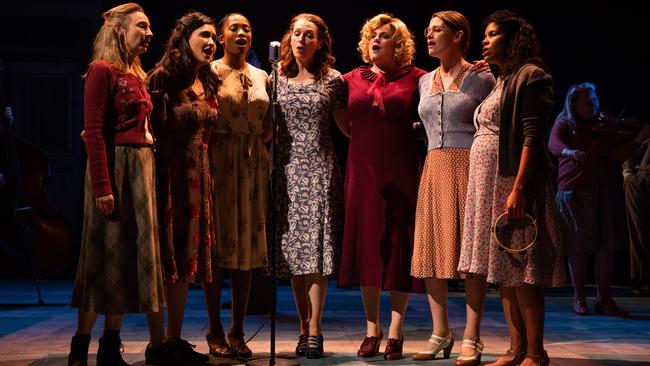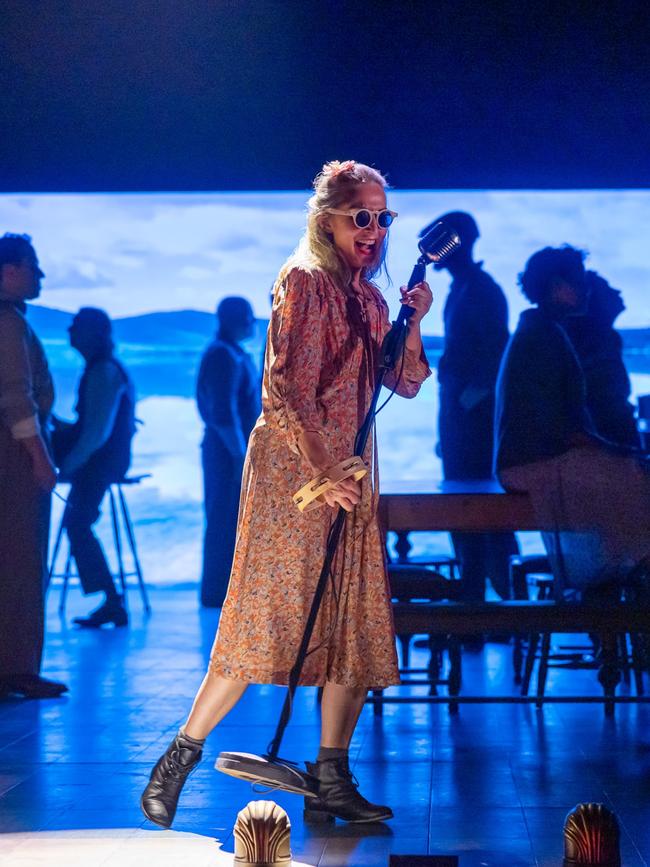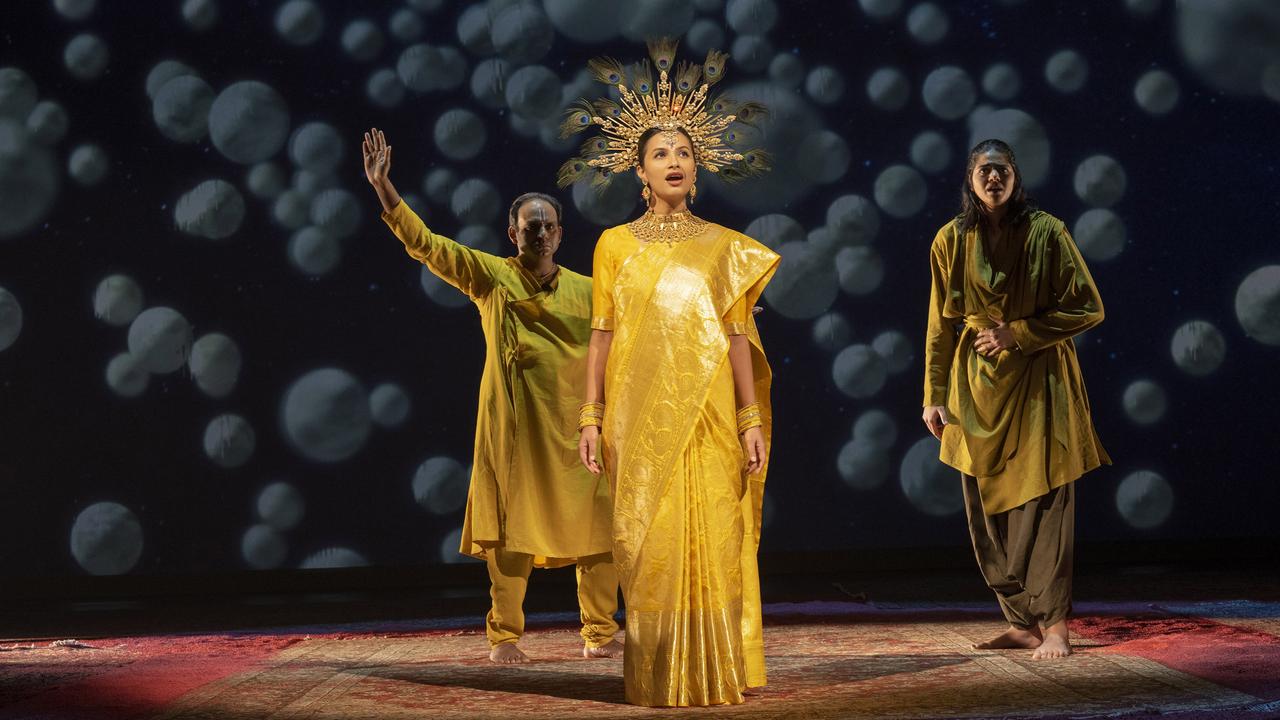Girl from the North Country: Bob Dylan’s poetry in emotion of struggle
The timeless quality of the Nobel laureate’s words emerges more strongly than ever in Conor McPherson’s production of Girl from the North Country.

Rooted in a devastated America of the past, Girl from the North Country magically speaks to the soul of anyone who has ever struggled anywhere, at any time, for any reason.
The location is a crumby boarding house in Duluth, Minnesota, evocatively summoned by Rae Smith’s vestigial sets and brilliantly chosen projections. It’s 1934 and, buffeted by the storms of winter and the privations of the Great Depression, a ragtag group of people takes meagre shelter.
Fragments of their lives rise to the surface then submerge as attention turns from one to another, the action slipping and shifting between naturalism and a kind of dreamworld in which music expresses the otherwise inexpressible.
As with so much recent musical theatre, Girl from the North Country is fashioned from existing songs. The similarity ends there, as might be expected when Bob Dylan is the composer. Simon Hale’s exquisite, often surprising arrangements of nearly two dozen songs are woven inextricably into the piece as intimate expressions of memory, desire, possibility, imagination and much more.
This is storytelling of the richest kind. It’s not narrative; it’s something deeper and more profoundly affecting. Playwright Conor McPherson, who also directed, has done Dylan proud in choices and treatment. The timeless quality of the Nobel laureate’s poetry emerges more strongly than ever. Is it relevant that McPherson is Irish and Girl from the North Country started life at London’s Old Vic in 2017? Perhaps.
Another departure from conventional musical theatre is the potent strain of early 20th-century American dramatic writing in the show. In a nod to Thornton Wilder’s Our Town (1938), Girl from the North Country is narrated by laconic medic Dr Walker (Terence Crawford), who occasionally wanders to the front of the stage to give some backstory. Not everything is filtered through him but he gives a wider, longer perspective to the few days at hand as the group comes together and drifts apart.
Boarding house owner Nick Laine (Peter Kowitz) has an ailing wife (Lisa McCune), drunkard son (James Smith) and a terrible burden from the past. There’s adopted daughter Marianne too (Zahra Newman), an African-American foundling whose presence in the family is dangerously unusual for the times.

Nick’s friend, Mrs Neilsen (Christina O’Neill), could open the door to something better, just as Joe Scott (Callum Francis) could pierce Marianne’s self-sufficiency.
And on goes the parade of flawed, fascinating humanity. Grant Piro is fantastically creepy as a flim-flam man of the cloth, and Helen Dallimore and Greg Stone are devastating as the parents of boy-man Elias (Blake Erickson).
Dallimore also plays the drums from time to time and Erickson the harmonica, augmenting the onstage band directed by Andrew Ross.
Everything always comes back to the music, often lifted to the sublime with delicate, ravishing vocal arrangements for the large ensemble.
Francis, McCune, Newman and, in particular, O’Neill are superb (McCune’s Forever Young is unforgettable) but if any show is a group endeavour, this is it. Ensemble members are integral to the ebb and flow of the work, even if seen only in the shadows and silhouettes of Mark Henderson’s gorgeous lighting or illuminating Lucy Hind’s subtle movement.
This insistence on beauty in the face of sorrow gives Girl from the North Country its vital spark of hope; transcendence even. As the work winds itself around the heart almost by stealth, it’s possible to feel a better tomorrow may arrive.
Girl from the North Country. Written and directed by Conor McPherson. Music and lyrics by Bob Dylan. Theatre Royal Sydney, January 8. Tickets: $49.90-$185. Bookings: online. Duration: 2hrs 30mins including interval. Ends February 27. Adelaide, March 25-April 10.


